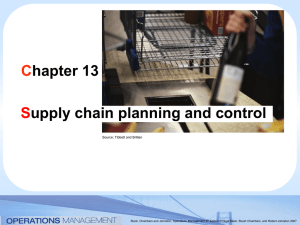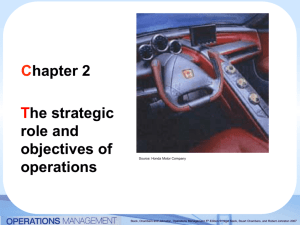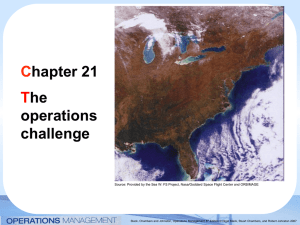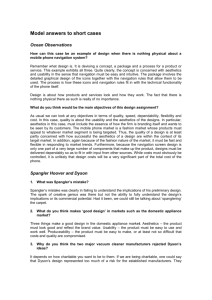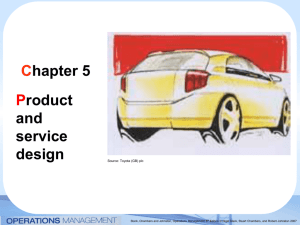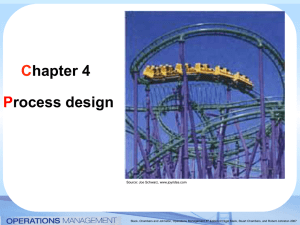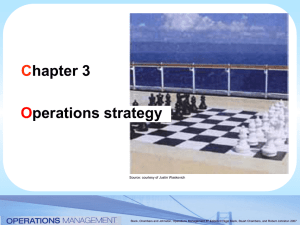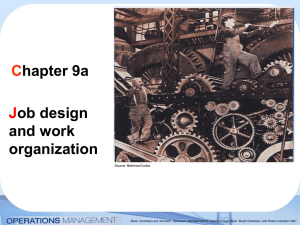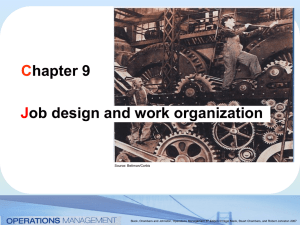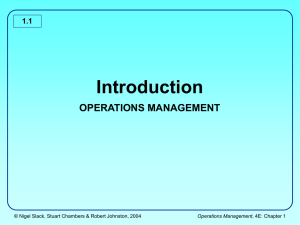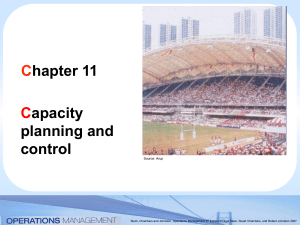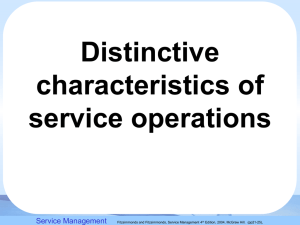Total Quality Management (TQM) Approach - Operations Management
advertisement
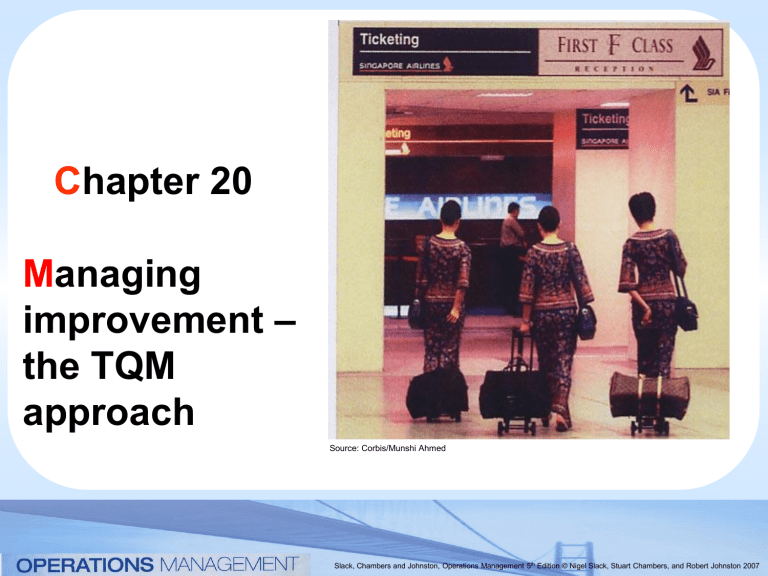
Chapter 20 Managing improvement – the TQM approach Source: Corbis/Munshi Ahmed Slack, Chambers and Johnston, Operations Management 5th Edition © Nigel Slack, Stuart Chambers, and Robert Johnston 2007 The quality gurus Philip Crosby Quality is free – the optimum is zero defects W. Edwards Deming Deming’s 14 points How to use statistics Armand Feigenbaum Total quality control Kaoru Ishikawa Quality circles and cause-and-effect diagrams Joseph Juran Quality as fitness for use, rather than conformance to specification Genichi Taguchi Loss function Minimize variation Slack, Chambers and Johnston, Operations Management 5th Edition © Nigel Slack, Stuart Chambers, and Robert Johnston 2007 Total quality management can be viewed as a natural extension of earlier approaches to quality management •Quality is strategic •Teamwork •Staff empowerment •Involves customers and suppliers Makes quality central and strategic in the organization •Quality systems •Quality costing •Problem solving •Quality planning Broadens the organizational responsibility for quality Solves the root cause of quality problems Prevents ‘out of specification’ products and services reaching market •Statistics •Process analysis •Quality standards •Error detection •Rectification Slack, Chambers and Johnston, Operations Management 5th Edition © Nigel Slack, Stuart Chambers, and Robert Johnston 2007 Total Quality Management Includes all parts of the organization Includes all staff of the organization Source: Corbis/Richard T Nowitz Includes consideration of all costs Includes every opportunity to get things right Includes all the systems that affect quality Never stops Slack, Chambers and Johnston, Operations Management 5th Edition © Nigel Slack, Stuart Chambers, and Robert Johnston 2007 The cost of rectifying errors increases more rapidly the longer they remain uncorrected in the development and launch process Cost of rectifying error 10000 1000 100 10 1 Concept Design Prototype Pilot Market use production Stage in development and launch process Slack, Chambers and Johnston, Operations Management 5th Edition © Nigel Slack, Stuart Chambers, and Robert Johnston 2007 Increasing the effort spent on preventing errors occurring in the first place brings a more than equivalent reduction in other cost categories Total cost of quality Costs of quality Appraisal Internal failure Appraisal Prevention Time Slack, Chambers and Johnston, Operations Management 5th Edition © Nigel Slack, Stuart Chambers, and Robert Johnston 2007 Effectiveness of the TQM initiative The pattern of some TQM programmes which run out of enthusiasm Introduction Growth Levelling off Learning and understanding Increasing enthusiasm Starting to hit the more difficult problems Disillusionment Waning enthusiasm Repackaging Attempts to revitalize the programme Slack, Chambers and Johnston, Operations Management 5th Edition © Nigel Slack, Stuart Chambers, and Robert Johnston 2007 Changing Quality Assumptions Reactive Proactive Inspection Prevention AQL ZD Blame placing Problem solving Quality cost more Quality cost less Quality is technical Quality is managerial Schedule first Quality first Defects hidden Defects highlighted Slack, Chambers and Johnston, Operations Management 5th Edition © Nigel Slack, Stuart Chambers, and Robert Johnston 2007
